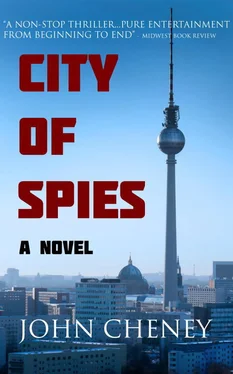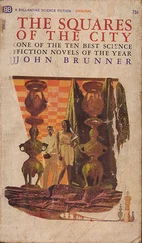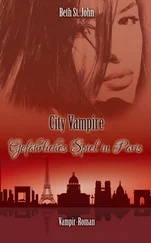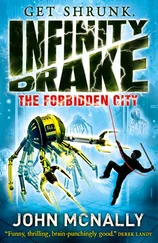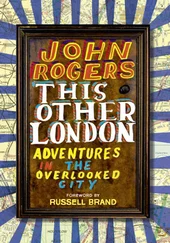Just as Hans and Müller stepped to the railing, Hans caught sight of someone looking at him from the base of the stairs diagonally across from him. It was a simple glance, but as Hans locked eyes with Brüske, they both knew they had been spotted.
Hans turned to Müller and handed him the forged orders and arrest warrant. “Here,” Hans said. “Take care of these. Don’t let anyone find them, and don’t get caught with them.”
“What are you going to do?”
Hans, seeing Brüske now moving up the stairs toward him, had no time to explain. “Get going and they might not see you. They might just aim for me.”
Hans ran around the balcony of the grand foyer, heading for another staircase. He hoped to distance himself enough from Brüske to get out of the building, but Brüske saw his ploy and bolted down his staircase and across the foyer toward him.
Above, Müller saw two of Brüske’s men heading toward him from the front of the balcony. Müller hurried up the rear staircase to the fourth floor and looked for a place to hide. He entered the theater, now completely dark. With the performance over for the night, the theater staff had quickly closed up shop and left. Müller carefully made his way down the stairs, feeling his way along the railing and seats so as not to trip. When he had found a row of seats not far from the wall, he ducked down and hid in the middle of the row.
No sooner had Müller crouched down, then the door opened, throwing a shaft of light into the darkness. Müller held his breath as the two Stasi agents entered and made their way through the aisles, searching for him. One of the men stumbled on the stairs, catching himself just as he was about to topple downward head-first. He swore loudly, catching an abrupt “Shh!” from his partner.
The men stopped to listen in the black void, but finding their search hopeless, gave up within a few moments. “Let’s go,” one whispered to the other. The acoustics of the empty theater carried his words further than expected. “If he’s in here, we’ll catch him outside the doors.” The men left.
Müller waited only a brief moment before moving. He reckoned the men had not seen or thought of the balcony, which was connected to the lower level by another set of stairs at the far edge of the theater. Müller was sure it was his only hope of escape. He moved as fast as he could safely go in the darkness, climbing until he had reached the doorway at the back of the balcony. He was now on the fifth floor.
Müller slowly opened the door a crack and looked out into the hallway. His eyes had adjusted so much to the darkness that he was initially blinded by the strong fluorescent light of the hall. After briefly allowing his irises to close down, he looked again and found the hallway empty. Müller slipped out the door and moved toward the conference rooms. Suddenly, he stopped and turned to his right. There was the door to the People’s Chamber balcony. Müller entered the Chamber and scanned the large room.
All of the lights in the Chamber were on, but like the theater, it was empty. Even the legislative floor below was deserted. Müller glanced at the seats in the gallery and suddenly had an idea. He worked his way along the third row until he found a chair that was well-worn in the seat. He examined the spot where the cushion and metal base of the fold-up seat met. Gently, he began to pull the metal base and cushion apart, just enough that an extra quarter-inch of cushion showed. He pulled out a penknife and cut a small, unobtrusive slit along the front of the cushion. Müller took out the papers Hans had given him and slipped them into the tear. He pushed the metal base and cushion back together, letting the tension of the seat neatly cover up the slit and hide his handiwork. Satisfied the papers were now safely hidden, Müller headed out of the People’s Chamber.
Sergeant Koch sat in his watch post at Potsdamer Platz S-Bahn station and yawned. It was a typical Sunday night; one of the quietest, and therefore most boring watch shifts of the week. In just a few hours, the trains would stop running for the night, and the post would fall silent. Across from him, a young private checked his watch and frowned.
“What?” Koch inquired.
“Comrade Sergeant, it’s five past eleven.”
“So?”
“The train didn’t come. Don’t you think that’s strange?”
Koch leaned back against the wall. “It’s Sunday. The trains only run every fifteen minutes on weekends.”
“Yes, of course,” the soldier continued, his concern still apparent, “but the last train came through at 10:30.”
Koch sat up and frowned. “Hmm. That is unusual. There might be a delay up at Friedrichstrasse.”
Before the soldier could open his mouth to reply, they heard the high-pitch whine of a train coming through the tunnel. Koch and the private rushed to the observation slits. They watched in confusion as the train slowly passed the platform with all of its interior lights extinguished. Peering into the darkened cars, Koch was alarmed. The S-Bahn cars were not empty, but they did not carry ordinary passengers. The train was almost gone before Koch recognized the dark figures clearly. They were a hundred East German shock troops, each in full battle gear and armed with AK-47s. The private’s mouth flapped open in surprise, feebly searching for something coherent to say.
Koch grabbed the telephone and called his superior, still astonished by what he had seen. “Is there an exercise underway?”
“What are you talking about?” his baffled commanding officer, Captain Loeffler, replied.
“Something we weren’t told about? A whole S-Bahn of our soldiers just came through here, headed south.”
Loeffler was at a loss. “You must be joking. There’s no exercise…”
Koch and the private heard another roar coming from the tunnel and watched yet another darkened train pass by. This one was exactly like the last, an S-Bahn fully loaded with armed troops.
“You’re right,” Koch said, now realizing the truth with horror. “It’s not an exercise. It’s an invasion.”
Hans raced around the balcony of the grand foyer, looking to escape. He flew down the stairs, but it was too late. Brüske was waiting for him at the bottom of the staircase. Hans was cornered.
Brüske reached into his coat, ostensibly to retrieve his gun. Hans knew there was only one direction he could go—straight for his pursuer. Hans gauged the distance between him and his opponent and realized he would have the advantage of height and momentum.
Hans lunged toward Brüske, sending all of his force directly into the man’s chest. Unprepared for the tackle, Brüske flew backwards and hit the floor hard. His head slammed against the marbled floor with a sickening crack, but miraculously, Brüske only suffered a concussion. Hans scrambled to his feet and bolted away before Brüske’s wildly clawing arms could catch him. Brüske gave a frenzied and booming shout, alerting the rest of the grand foyer.
Hans dashed for the exit. Most of the bystanders looked on in confusion, watching a uniformed Border Troop officer flee from a scuffle with a man in civilian clothes. Before anyone could act, Hans was already out the door. But Brüske would not give up. He drew his gun and fired a wild shot through the closing door.
Hans ducked at the report of the gunshot and bolted down the front steps of the Palace. In the parking lot, a uniformed policeman on a MZ TS 250 motorcycle saw Hans running and drove up to him. “What’s going on?”
Hans swiftly delivered an uppercut to the policeman’s chin, knocking him off his motorcycle. Before the policeman could recover, Hans climbed onto the motorcycle, gunned the engine, and sped away. Brüske stumbled out the front door, screaming. Dazed, the policeman tried to collect himself off the pavement.
Читать дальше
